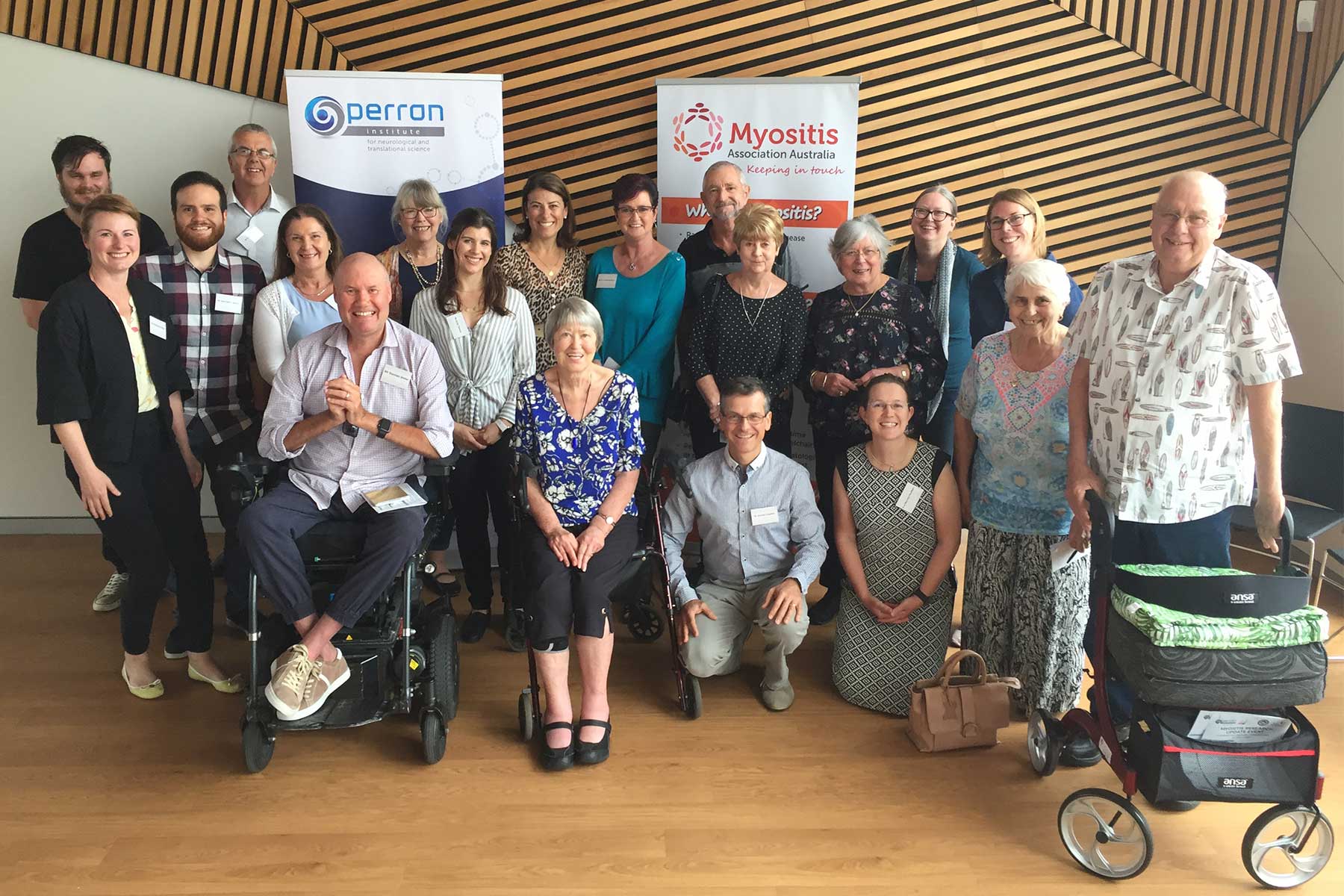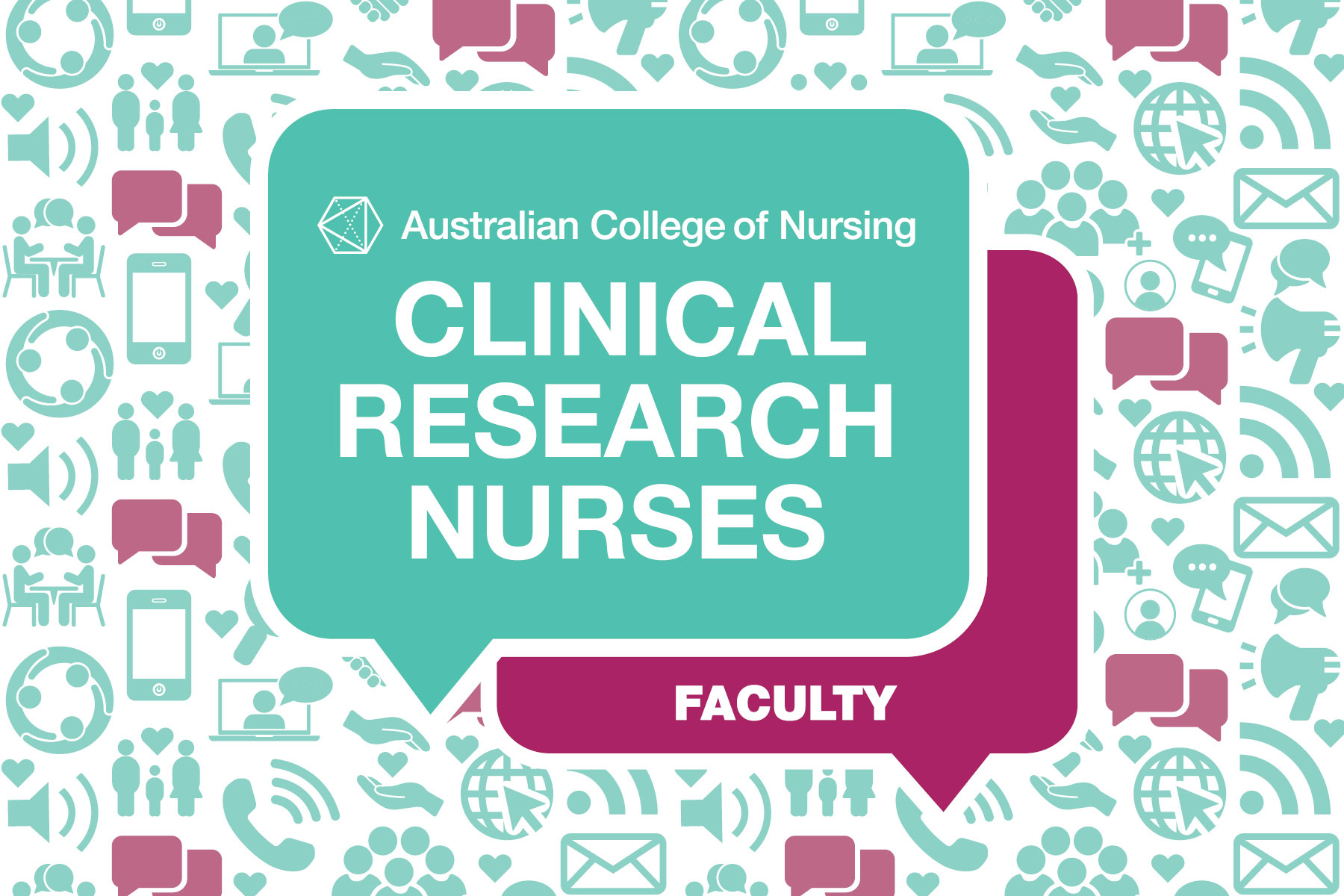A core component of the Australian College of Nursing (ACN) is connecting Australia’s nurses to specialties and interests. One of the many ways we connect our community is through our Faculties. Faculties provide likeminded nurses interested in, or working in certain specialties to create a community, connect for opportunities and to support each other in their nursing careers.
We have recently announced a new faculty – the Clinical Research Nurses Faculty. If you are a Clinical Research Nurse (CRN) or an ACN Member interested in learning more about this fulfilling way to contribute to nursing, please email engagement@acn.edu.au.
In time for Rare Diseases Day, we sat down with three CRNs to discuss their role in addressing and eliminating rare diseases. Read stories from:
What is a clinical research nurse?
A Clinical Research Nurse is a specialised registered nurse (RN) who combines clinical nursing expertise with research knowledge and skills. This is different from the role of a nurse researcher, who typically leads research projects. The CRN role is defined as one that is responsible for caring for clinical research participants and integrating research protocol requirements with holistic nursing care.
As documented in the recently released ACN Clinical Research Nurse (CRN) Australian Standards For Practice, the CRN role is agile, flexible, and effective across various settings, including health care, academia, and industry. The CRN role includes different responsibilities across clinical and research workstreams, depending upon the setting and sector (primary through to health care). The integration of clinical, professional, organisational, and administrative responsibilities is central to the role of the CRN.
It is a highly challenging, dynamic, rewarding and sometimes misunderstood role.
Susan Poechhacker
Clinical Trial Specialist- Cancer Coordinator Lead
University of the Sunshine Coast | Clinical Trials
In the rare disease setting, the clinical research nurse is a critical link between patients, healthcare providers, and researchers. We provide compassionate and expert care to patients, support their families, and work closely with investigators to ensure the successful implementation of clinical trials. CRNs contribute to developing and implementing clinical trial protocols, monitoring patient safety, and coordinating, collecting and analysing data.
We also play a vital role in educating patients and families about their disease, the clinical trial protocol, and the treatments they are having. The expertise and dedication of clinical research nurses in increasingly complex clinical trials are essential to improving the quality of care and advancing our understanding of rare diseases and their possible treatments.
Clinical trials offer people with rare diseases access to new treatments that would otherwise not be available. By participating in clinical trials, patients can receive cutting-edge therapies that may not have been approved yet. Clinical trials also provide a platform for researchers and healthcare providers to collaborate and share knowledge, ultimately leading to improved outcomes for patients.
Through clinical trials, patients have access to personalised care. They will regularly see their doctor and trials team at more frequent health intervals than might normally occur for items such as health check-ups as part of the treatment protocol. Expanding access to clinical trials can accelerate the development and approval of new treatments and improve the quality of life for patients with rare diseases.
Kelly Beer MACN, RN
Clinical Research Manager
Myositis Discovery Program
Centre for Molecular Medicine and Innovative Therapeutics (CMMIT), Murdoch University / Perron Institute for Neurological and Translational Science
Four years ago, I started work as a Clinical Research Nurse with a research program in myositis (a group of rare inflammatory muscle diseases), particularly a condition called Inclusion Body Myositis (IBM).
When someone is diagnosed with rare diseases like myositis, it is unlikely that there will be specialist nurses available who can provide disease-specific support. There are gaps in education, support and understanding of rare diseases amongst the public and even within the health profession. Funding is challenging, as there are so many important rare disease causes, and not enough money to support them all.
Clinical research plays a critical role in rare disease care, as many rare diseases remain poorly understood and with no effective treatments. Clinical research, and in particular clinical trials, offers an important pathway for accessing potential new treatments. Research offers people with a rare disease hope for improved treatments and outcomes, but often our patients are simply driven by the hope that it will be a better journey for the next person.
As a CRN working in a rare disease area, you become a ‘specialist’ nurse resource for patients and their families. Part of the job that I love is interchanging two ‘hats’: the research ‘hat’, and a myositis specialist nurse ‘hat’. The autonomy of the CRN role allows me to manage research and clinical tasks flexibly, meaning that I can prioritise time with patients when they need it.
There is an incredible sense of responsibility that comes with the CRN role in rare disease, and a genuine partnership that is built with patients and their families. We have been able to achieve so much with the integrated clinical and research approach that comes with working as a CRN in rare diseases – our patient group is engaged and informed about research; they are curious and involved in research and their health, suggesting and even leading research projects; and importantly, they have ready access to specialised clinical support and nursing care.

Myositis patients and families together with research team members at the 2019 Myositis Discovery Program. Source: Tennille Kroemer
Naomi Strout (She/Her) MACN RN RM MAdvN
Project Manager & Executive Officer – The MothersBabies Study
Chair, Clinical Research Nurse Faculty – Australian College of Nursing
School of Clinical Medicine, UNSW Medicine & Health
Being a CRN is so much more than just data entry. It requires all our healthcare training, patient assessment skills, administering medication, logging and treating adverse events, liaising with numerous stakeholders, engaging in critical thinking, and reflecting on practice.
This management is even more complicated when working in paediatric clinical trials, where in many cases, our trials are the last hope for a young patient.
We often work with patients dealing with rare forms of epilepsy, such as Tuberous sclerosis complex, or rare non-healing dermatological conditions like epidermolysis bullosa. CRNs work with clinicians and protocol guidelines in the hope of finding a therapeutic regime to manage the symptoms and improve the quality of life of their patients.
We are the first to see it when children and young people benefit from new treatments not yet available in Australia – it is a truly rewarding experience.
The Clinical Research Nurses Faculty aims to gather likeminded nurses together to offer support, provide networking opportunities, share research, raise the profile of the specialisation, and create a community. Learn more about the Faculty and join on our website.





